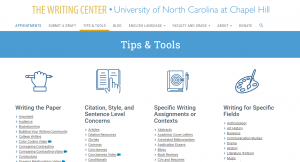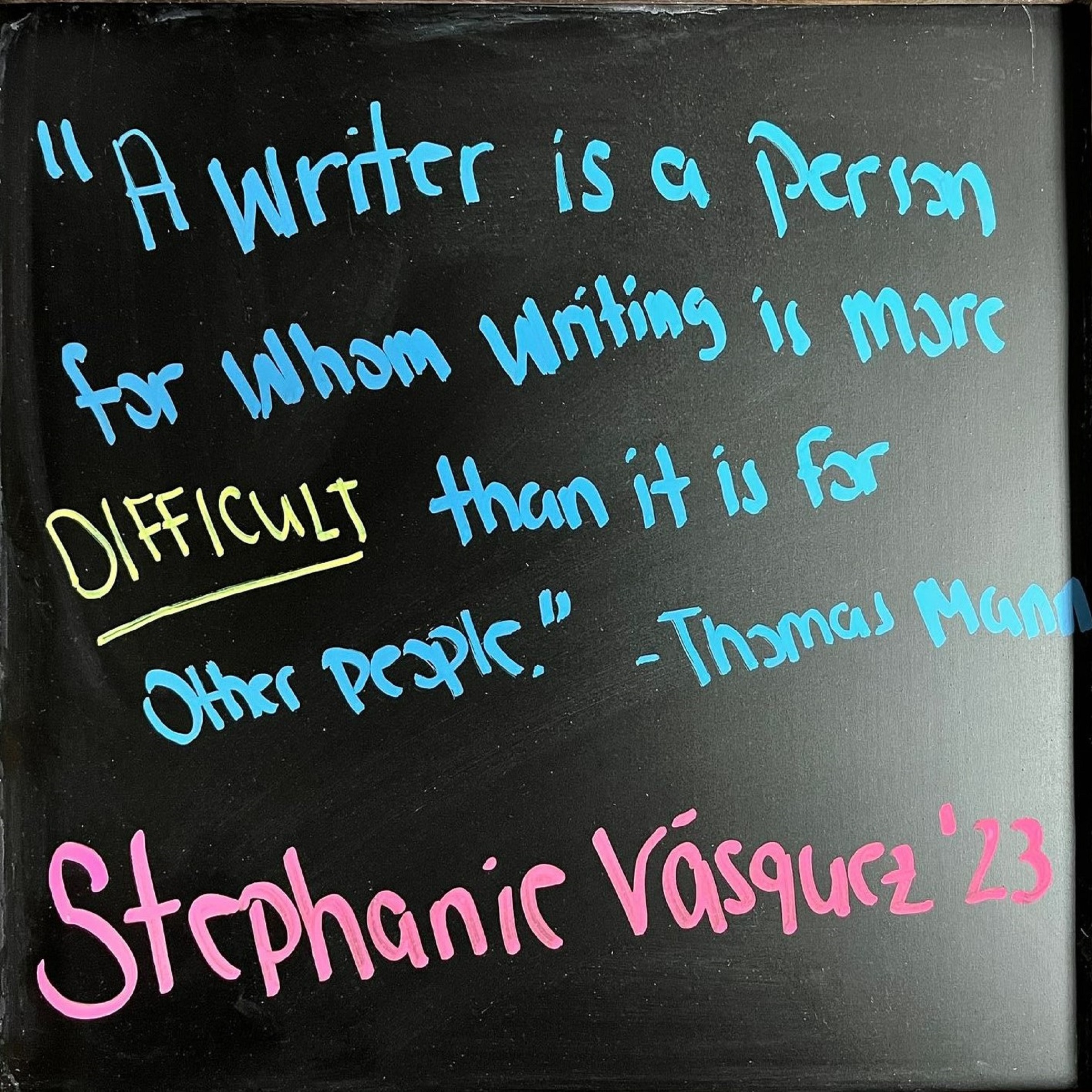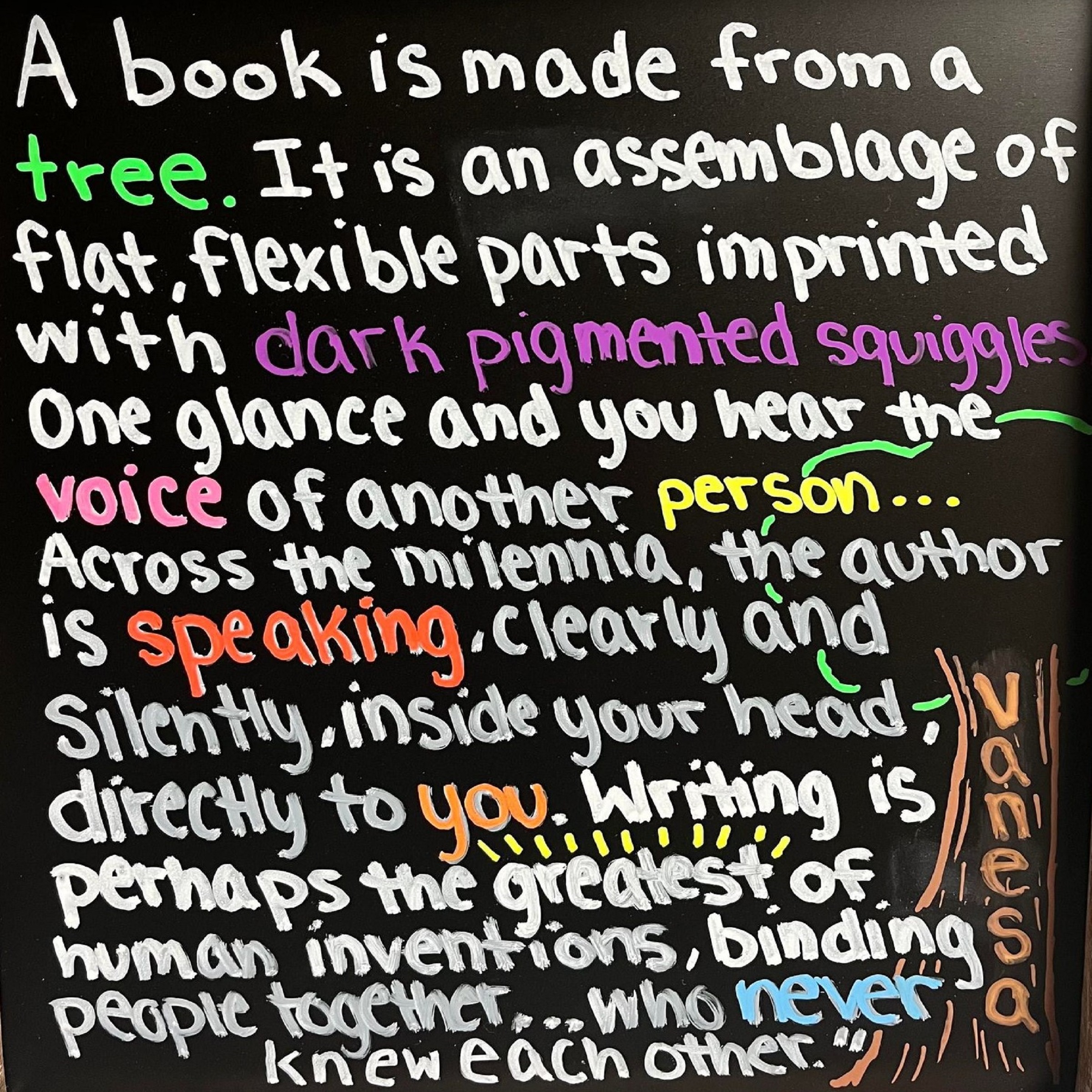by Stephanie Lehner and Caitlin Doughton
As Biology and Philosophy double majors in SJLA, we have gained experience writing both scientific and humanity-based papers; however, we recognize that transitioning between the two often can be difficult. We would like to provide a guide on how to tackle this task. While it is true that the two writing styles vastly differ in some regards, they also share similarities! As in all writing, it is important to have a clear purpose, and thus, pick a specific topic to discuss. For example, rather than writing about Plato’s Symposium in its entirety, the specific topic of Eros (Love) in the Symposium can be analyzed. Similarly, rather than writing about cells in general, the specific topic of embryonic stem cells can be researched.
When writing scientifically, it is important to have succinct sentences and strong verbs that convey the topic at hand. Although long and flowy sentences may sound better from the writer’s perspective, such a structure may force readers to analyze each sentence multiple times before they grasp the true meaning! Therefore, it is essential that sentences only include information that is necessary for properly interpreting the topic. Including and referencing experimental and statistical data also improves a scientific paper, for readers can better understand a topic when evidence is provided. In scientific writing, a certain format is often followed: abstract, introduction, methods, results, and discussion. This outline allows for a smooth progression of thoughts, moving from general information about the topic to specific information about data. It is also vital to conduct research on other literature regarding the topic at hand to provide background knowledge. Doing so will increase the paper’s credibility if similar results have been obtained in other experiments. We find PubMed, Google Scholar, and Science Direct to be useful websites for obtaining peer-reviewed articles and would recommend them as a strong starting point.
Conversely, when writing in the humanities, students often have more creative liberty and can use a variety of adjectives and adverbs to convey imagery. Yet, students should also be cognizant of speaking succinctly because the inclusion of “fluffy” words or sentences detract from a paper’s purpose. Although humanities papers often display more linguistic creativity than scientific papers, it is important to recognize the fine line between words that add to versus words that take away from the paper’s message. In the humanities, a specific structure is generally utilized when writing papers: introduction, body paragraphs, and conclusion. Just as the abstract summarizes a scientific paper, an introduction gives insight into a humanity paper’s central discussion. Thus, it is vital that papers have strong thesis statements, so readers have a clear direction. In fact, a thesis statement may cause readers to decide if they do or do not wish to continue reading your piece! Lastly, resources, such as the library’s database and collection of books, along with Google Scholar, are helpful for humanities papers. We also find Purdue’s OWL’s Sample Papers to be an extremely helpful resource for better understanding how to properly format a paper.
As always, it is important not to worry oneself when writing a paper or to overthink when starting the writing process. We always find it helpful to write down preliminary ideas and goals for a paper in the format of an outline. Doing so allows us to have a clear focus regarding the paper’s topic and helps the writing process to go much more smoothly. At The Writing Center, we have benefitted from making appointments with other writing consultants to help with our own papers. As such, we understand the importance of helping other people with their writing too. If you are ever having trouble starting, working on, or finishing a paper, The Writing Center has numerous resources to help!
Good luck and happy writing!















